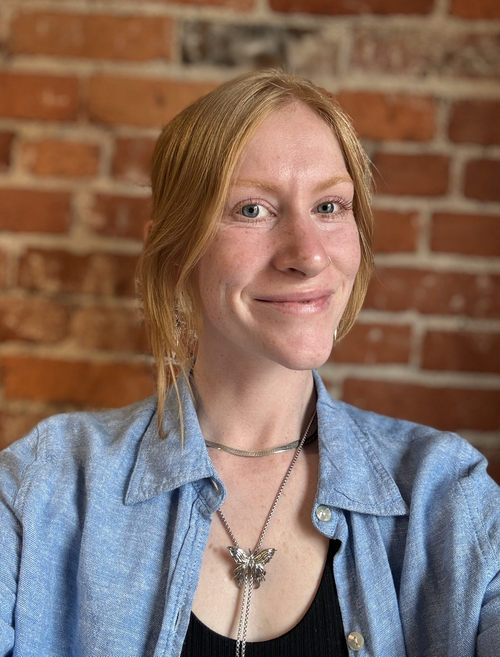Regenerative Economy & the Cooperative Spirit of Women Entrepreneurs
Tired of hustle culture and one-woman shows? The next wave of entrepreneurship isn’t about scaling fast or doing it all. It’s about doing it together. For women entrepreneurs, cooperative models aren’t just trendy; they’re transformative. These regenerative, community-rooted economies offer a bold path forward: one that prioritizes people over profit and connection over competition.
by Emily Daley
Regenerative economy is rooted in practices that restore and renew ecological and social systems as an alternative to extractive capitalism focused on sustainability, and human-centered economy.
For women entrepreneurs, especially, cooperatives offer more than just an alternative business model–they offer a pathway to reclaim economic agency, community wealth, and collective power. This is not a new idea, but a return to ancestral patterns of cooperation, care, and regeneration that women have practiced for centuries.
What Is a Regenerative Economy?
A regenerative economy is one that prioritizes the health of people, communities, and ecosystems. Unlike extractive economies that deplete resources for short-term gain, regenerative systems aim to replenish and restore. This includes localizing production, sharing ownership, embracing circular practices, and centering mutual care. Regenerative economics doesn’t merely ask what a business produces, but how it produces, for whom, and with what long-term impact. In this way, it echoes a long tradition of women’s informal and formal economies–rooted in reciprocity, interdependence, and sustainability. For example, Seed Commons, a cooperatively governed national CDFI and nonprofit financial organization, brings this vision to life by financing community-controlled businesses that prioritize collective wealth and local reinvestment. A short article titled "Regenerative Investments and Female Leadership: A Path to Prosperity and Wellbeing" summarizes this growing movement well, emphasizing how women’s leadership aligns with regenerative values.
Cooperatives: A Living Regenerative Structure
Cooperatives are businesses owned and governed by the people who use their services, work in them, or live in them. Their foundation is the Seven Cooperative Principles, which align closely with regenerative values:
1. Voluntary and Open Membership – inclusion over exclusion
2. Democratic Member Control – shared power and self-determination
3. Member Economic Participation – equitable wealth building
4. Autonomy and Independence – freedom through interdependence
5. Education, Training, and Information – capacity building for resilience
6. Cooperation Among Cooperatives – networks of mutual support and solidarity
7. Concern for Community – local stewardship and regeneration
Each principle speaks directly to the regenerative mindset: that wealth is not merely financial, that ownership should be shared, and that economic activity should strengthen rather than deplete.
Women, Cooperation, and the Regenerative Thread of History
Long before the modern cooperative movement was formalized in the 19th century, women across cultures organized economic life in cooperative and regenerative ways.
From Indigenous seed keepers and African-American mutual aid societies, to informal savings circles, textile cooperatives, and caregiving collectives, women have long practiced economies of care and cooperation. These are not side economies–they are foundational to survival and cultural continuity. In doing so, they built economic systems rooted in shared labor, trust, and regeneration. Today’s women-led cooperatives carry this legacy forward.
The Modern Movement: Regeneration as Feminist Economic Strategy
Across the globe–and especially in the past decade–women are leading new cooperative enterprises, and make up the majority of worker-owners according to the US Federation of Worker Cooperatives 2023 census –from worker-owned cleaning cooperatives, rural cooperative agriculture and farm, home care cooperatives, and child care cooperatives, as well as with the rise of women in CEO positions in Energy Cooperatives.
This work is not just about creating better workplaces–it’s about reshaping the economy to value what women have long known to be essential: care work, community wellbeing, ecological health, and relational leadership lead to healthy communities.
Cooperatives give women entrepreneurs a structure to:
● Share risk and reward,
● Practice democratic leadership,
● Build intergenerational wealth,
● Root their enterprises in place and purpose.
In doing so, they regenerate not only the economy, but also the social fabric strained by rugged individualism, precarity, and systemic inequity.
An Invitation to Collaborate
At Inland Cooperative Services, our mission is to help make the Inland Northwest an increasingly economically viable and resilient region where everyone can flourish.
As Project Steward, I work alongside my fellow co-founders Emily Himmelright, Micheal Snow, and Terri Parrish to serve small businesses, cooperatives, and values-aligned organizations through personalized bookkeeping, accounting, financial advisory, and cooperative lending services.
We’re here to support those building businesses rooted in care, sustainability, and community wealth–and we’re actively seeking partners who share our vision for regenerative business practices. Whether you're already working toward that vision or want to explore how to bring it to life in our region, we’d love to connect and learn together!
About the Author:Emily Daley, Project Steward
Inland Cooperative Services
Website: https://www.inlandcs.org/
Instagram: @inlandcoopservices
LinkedIn: https://www.linkedin.com/in/emilydaley-noles/
Emily Daley is a co-founder and worker-owner at Inland Cooperative Services, where she supports values-aligned small businesses through bookkeeping, accounting, and cooperative development. Introduced to co-ops while working in HR at a worker-owned holding company, she’s now a Seed Commons Project Steward dedicated to expanding the opportunities and impact of worker cooperatives in our communities.

